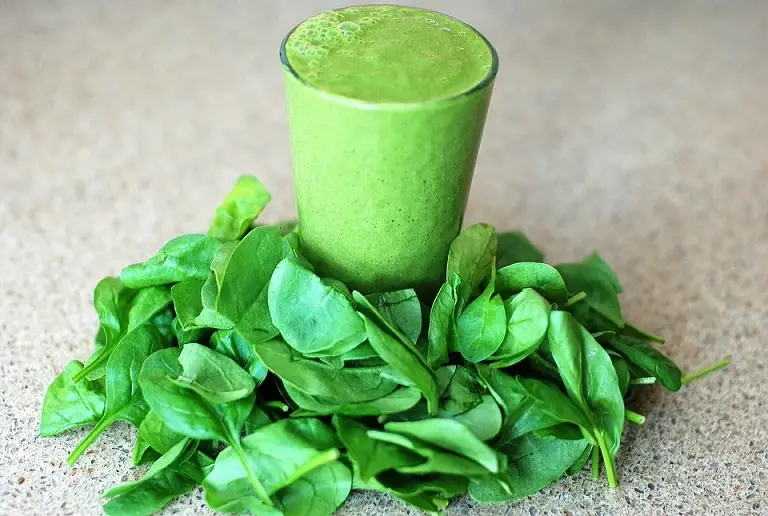Discover the mind-blowing connection between magnesium and testosterone and unlock your inner beast!
Did you know that this essential mineral can dramatically boost your testosterone levels, leading to increased strength, muscle mass, and energy?
It’s time to dive into the science behind this powerful combination and learn how magnesium can help you unleash your true potential.

Magnesium plays a crucial role in maintaining hormonal balance within the body. Studies have shown that adequate magnesium levels are directly linked to elevated testosterone production.
This means that by ensuring you have enough magnesium in your diet, you can give your testosterone levels a natural, much-needed boost.
But that’s not all. Magnesium also plays a vital role in overall health and well-being. It supports bone health, aids in muscle recovery, and promotes better sleep – all essential factors for optimizing your testosterone levels.
In this article, we will explore the science behind the magnesium-testosterone connection and provide you with practical tips on how to incorporate magnesium into your daily routine.
Get ready to unleash your inner beast by harnessing the power of magnesium and maximizing your testosterone levels!
The Role of Magnesium in the Body
Magnesium has a pivotal function in upholding general health and overall well-being.
It is involved in hundreds of biochemical reactions in the body, including protein synthesis, muscle and nerve function, blood glucose control, and blood pressure regulation. Without adequate magnesium levels, our bodies cannot function optimally.
One of the key functions of magnesium is its role in maintaining hormonal balance. Hormones serve as chemical messengers that aid in the regulation of diverse bodily functions, such as growth, metabolism, and reproduction.
Magnesium is particularly important for the production and regulation of testosterone, a hormone that is vital for the development of male characteristics and plays a crucial role in muscle growth, strength, and energy levels.
Understanding Testosterone and Its Importance
Testosterone is often referred to as the “male hormone,” but it is present in both men and women, although in different amounts. Among males, the testes serve as the primary source of testosterone production, whereas in females, it originates from the ovaries and adrenal glands.
Testosterone plays a pivotal role in the development of male sexual attributes, including the deepening of the voice, the growth of facial and body hair, as well as the buildup of muscle mass.
In addition to its role in physical development, testosterone also plays a crucial role in overall health. It helps regulate mood, cognitive function, bone density, and cardiovascular health. Optimal testosterone levels are essential for maintaining energy, vitality, and a sense of well-being.
The Link Between Magnesium and Testosterone Production
Numerous studies have shown a direct correlation between magnesium levels and testosterone production. Magnesium is involved in the conversion of cholesterol into testosterone, a process known as steroidogenesis. Without sufficient magnesium, this conversion cannot occur efficiently, leading to decreased testosterone levels.

Furthermore, magnesium helps regulate the production of sex hormone-binding globulin (SHBG), a protein that binds to testosterone and reduces its bioavailability. By maintaining optimal magnesium levels, you can ensure that testosterone remains free and available for use by the body.
How Magnesium Deficiency Can Impact Testosterone Levels
Magnesium deficiency is more common than you might think, with an estimated 50% of the population not meeting their daily magnesium requirements. Several factors contribute to magnesium deficiency, including poor diet, excessive alcohol consumption, chronic stress, and certain medications.
When magnesium levels are low, the body prioritizes other essential functions over testosterone production. As a result, testosterone levels can decrease, leading to a range of symptoms, including low energy, decreased muscle mass, decreased libido, and mood disturbances.
The Benefits of Optimizing Magnesium Levels for Testosterone Production
Optimizing magnesium levels can have a profound impact on testosterone production and overall health. By ensuring you have sufficient magnesium in your diet, you can experience the following benefits:
1. Increased Testosterone Levels: Studies have shown that magnesium supplementation can significantly increase testosterone levels, leading to enhanced muscle growth, strength, and athletic performance.
2. Improved Muscle Recovery: Magnesium plays a crucial role in muscle relaxation and recovery. By optimizing magnesium levels, you can reduce muscle soreness and enhance post-workout recovery.
3. Better Sleep Quality: Magnesium is known to promote better sleep by regulating neurotransmitters and hormones involved in sleep. Quality sleep is essential for optimal testosterone production and overall well-being.
4. Enhanced Bone Health: Magnesium is essential for the absorption and utilization of calcium, a mineral vital for strong and healthy bones. By optimizing magnesium levels, you can support bone health and reduce the risk of osteoporosis.
You might be interested to know: Link between Vitamin D and testosterone.
Magnesium-Rich Foods and Supplements for Boosting Testosterone
Incorporating magnesium-rich foods into your diet is an effective way to increase your magnesium intake and support optimal testosterone production. Among the top dietary sources rich in magnesium are:
1. Dark Leafy Greens: Spinach, kale, and Swiss chard are excellent sources of magnesium.
2. Nuts and Seeds: Almonds, cashews, pumpkin seeds, and chia seeds are all high in magnesium.
3. Legumes: Black beans, chickpeas, and lentils are rich in magnesium and provide a good source of plant-based protein.
4. Whole Grains: Quinoa, brown rice, and oats are all magnesium-rich options.
If it is challenging to meet your magnesium requirements through diet alone, supplementation may be necessary.
An array of magnesium supplements can be found, each offered in distinct formulations like magnesium citrate, magnesium glycinate, and magnesium oxide.
Our top testosterone supplement Testogen, contains combination of magnesium oxide and magnesium citrate along with other testosterone boosting ingredients.
It is advisable to seek guidance from a healthcare expert to ascertain the optimal form and dosage of magnesium tailored to your individual requirements.
Lifestyle Changes to Support Magnesium Absorption and Testosterone Production
In addition to incorporating magnesium-rich foods and supplements into your diet, there are several lifestyle changes you can make to support magnesium absorption and testosterone production:
1. Reduce Stress: Chronic stress can deplete magnesium levels in the body. Integrate stress-relieving techniques like meditation, yoga, and deep breathing exercises into your everyday schedule.
2. Limit Alcohol Consumption: Excessive alcohol consumption can interfere with magnesium absorption and metabolism. Moderation is key for maintaining optimal magnesium levels.
3. Get Regular Exercise: Regular physical activity has been shown to increase magnesium absorption and utilization. Aim for a combination of cardiovascular exercise and strength training to support testosterone production and overall health.
4. Prioritize Sleep: Quality sleep is essential for testosterone production and overall well-being. Create a sleep-friendly environment, establish a consistent sleep schedule, and practice good sleep hygiene habits.
The Potential Risks and Side Effects of Magnesium Supplementation
While magnesium supplementation is generally safe for most individuals, it is essential to be aware of potential risks and side effects.
Some individuals may experience digestive symptoms such as diarrhea, nausea, or stomach cramps when taking high doses of magnesium supplements. To minimize the risk of side effects, start with a low dose and gradually increase as tolerated.
Individuals with kidney problems or certain medical conditions should consult with a healthcare professional before taking magnesium supplements, as high doses may be contraindicated.
Dosage Recommendations and Considerations for Using Magnesium for Testosterone Enhancement
The recommended daily allowance (RDA) for magnesium varies depending on factors such as age, sex, and overall health.
For the majority of adults, the Recommended Dietary Allowance (RDA) varies between 310 and 420 milligrams per day. However, individuals looking to optimize testosterone production may require higher doses.
When considering magnesium supplementation for testosterone enhancement, it is essential to start with a low dose and gradually increase as needed. Regular monitoring of magnesium levels through blood tests can help determine if supplementation is necessary and if dosage adjustments are needed.
It is crucial to note that while magnesium can have a positive impact on testosterone production, it is not a magic solution. Lifestyle factors such as diet, exercise, stress management, and adequate sleep all play a significant role in maintaining optimal testosterone levels.
Seek Guidance from a Healthcare Professional for Personalized Recommendations
Before embarking on any new supplement or making significant changes to your diet or lifestyle, it is always recommended to consult with a healthcare professional. They can assess your individual needs, provide personalized advice, and monitor your progress to ensure optimal results.
A healthcare professional can also help identify any underlying medical conditions or factors that may be impacting your testosterone levels. They can recommend appropriate testing and treatment options if necessary.
Conclusion: Magnesium and testosterone
Magnesium is a powerful mineral that plays a vital role in maintaining hormonal balance and overall health.
By ensuring you have sufficient magnesium levels, you can support optimal testosterone production and unleash your inner beast.
Incorporate magnesium-rich foods into your diet, consider supplementation if necessary, and make lifestyle changes that support magnesium absorption and testosterone production.
Remember; consult with a healthcare professional for personalized advice and guidance on optimizing your testosterone levels. Unleash your true potential by harnessing the power of magnesium and unlocking your inner beast!
